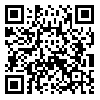BibTeX | RIS | EndNote | Medlars | ProCite | Reference Manager | RefWorks
Send citation to:
URL: http://ijme.tums.ac.ir/article-1-5535-en.html
2- Tehran University of Medical Sciences, Tehran, Iran
3- Medical Ethics and History of Medicine Research Center, Tehran University of Medical Sciences, Tehran, Iran.
Truth-telling is considered as an important topic of modern discussion regarding the physician-patient relationship. The present study examined the behavior of physicians in disclosing the truth to patients. For this purpose, a total of 161 cancer specialists were selected using the simple random sampling technique. Research instrument consisted of a 24-item questionnaire based on expert opinion and the review of related literature. The results of item prioritization indicated that the participants ranked the following two items as highest in terms of attitude: "It is the basic right of patients to know about their condition", and "Relatives' participation in disclosing the truth to patients is rather beneficial". Research results also showed a positive and significant correlation between attitude and truth-telling tendency. Furthermore, multiple regression analysis by SMART-PLS software demonstrated that perceived behavioral control (self-efficiency) has the greatest impact on physicians' tendency toward truth-telling. The prediction power of planned behavior theory in predicting physicians' truth-telling behavior was established at 92 percent. Based on these findings, it is recommended to employ experts and adopt relevant guidelines to train novice physicians. Moreover, Iranian health officials are advised to take corrective measures to improve physicians' attitudes and subjective norms.
Received: 2015/05/21 | Accepted: 2015/09/1 | Published: 2015/09/5
| Rights and permissions | |
 |
This work is licensed under a Creative Commons Attribution-NonCommercial 4.0 International License. |





